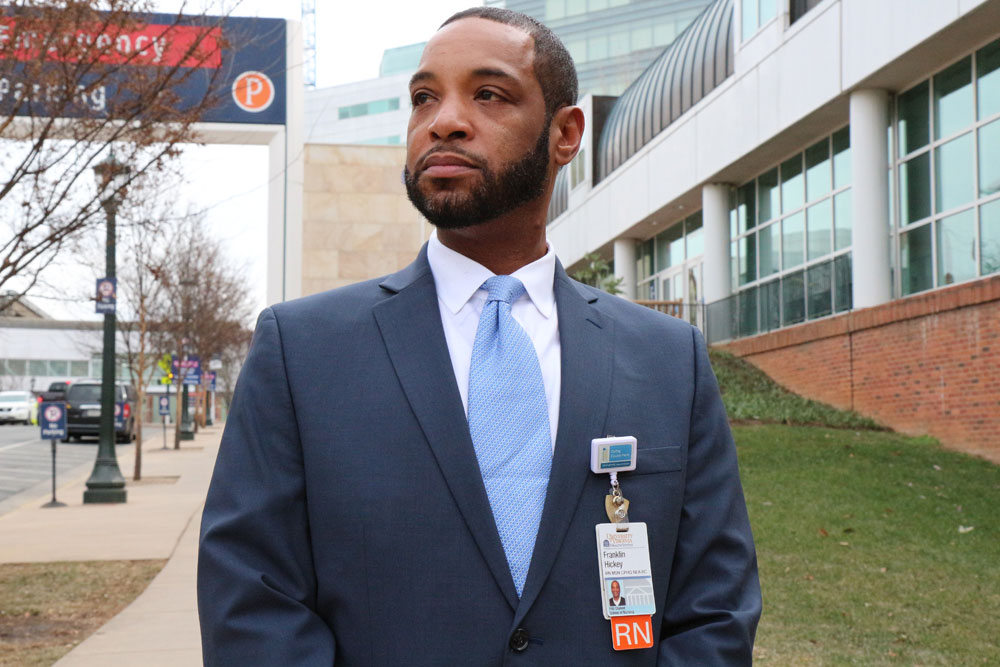Heroes' Narrative

When planes struck the Twin Towers on 9/11, Franklin Hickey was a mere 20 miles away, at work as the administrative director for Patient Care Services at Union Hospital in Union, NJ.
“The day started like any other,” recalls Hickey. “I was making rounds throughout the hospital and noticed people crowding around televisions with perplexed looks on their faces. From there, things quickly changed.”
He recalls the “emotional chaos” of that day, which shook him personally and professionally, and the turbulence that soon followed.
“My role continually evolved,” says Hickey. “That day, I was a nurse, hospital administrator, incident commander, security officer, social worker, and crisis worker, just to name a few.”
In anticipation of the walking wounded making their way to New Jersey, Hickey and his nursing team set up triage tents in the hospital parking lot, lining the driveway with rows of stretchers. Although the hospital mobilized quickly to provide care and services, few patients came—a heartbreak that Hickey reflects was the hardest part of the day: being prepared, but without many survivors to help.
Most poignant amid the grief and tragedy, Hickey vividly remembers how his fellow nurses—some of whom lost family members in the terrorist attacks—selflessly placed the care of others before their own personal needs. Thirteen years later, when Hickey was offered the position of ambulatory manager with UVA Health System with an opportunity to pursue a PhD in nursing—a position he happily accepted—it was his unforgettable experiences from Sept. 11 that would ultimately push his scholarship in a new and unexpected direction: narrative nursing history.
The shift even surprised Hickey.
“When I first started my PhD, I’d planned to do a quantitative study evaluating quality among healthcare systems,” he explains. “It wasn’t until I took a nursing history course with Professor Arlene Keeling that I considered focusing my dissertation on nursing history. She helped me realize that my perspective and experience of 9/11 was fodder for scholarship, and that’s fueled my interest in telling the oral histories of nurses working in the New York City tristate area that day.”
His scholarly pivot also fortified Hickey’s connection with faculty members like Keeling and History Center Director Barbra Mann Wall, his advisor, whom he calls “guiding lights.”
“My favorite aspect of attending the School has been the support, guidance, and collaboration of all faculty and staff,” says Hickey. “I tell my friends that while it’s a rigorous program, the faculty members have made it enjoyable.”
Post-graduation, Hickey aims to merge his two decades of hospital administration experience with his academic pursuits to bridge the gap between nursing research and practice. He plans to continue building on his interest in nursing history by sharing the stories of unsung nursing heroes—specifically, those impacted by manmade and natural disasters.
###
